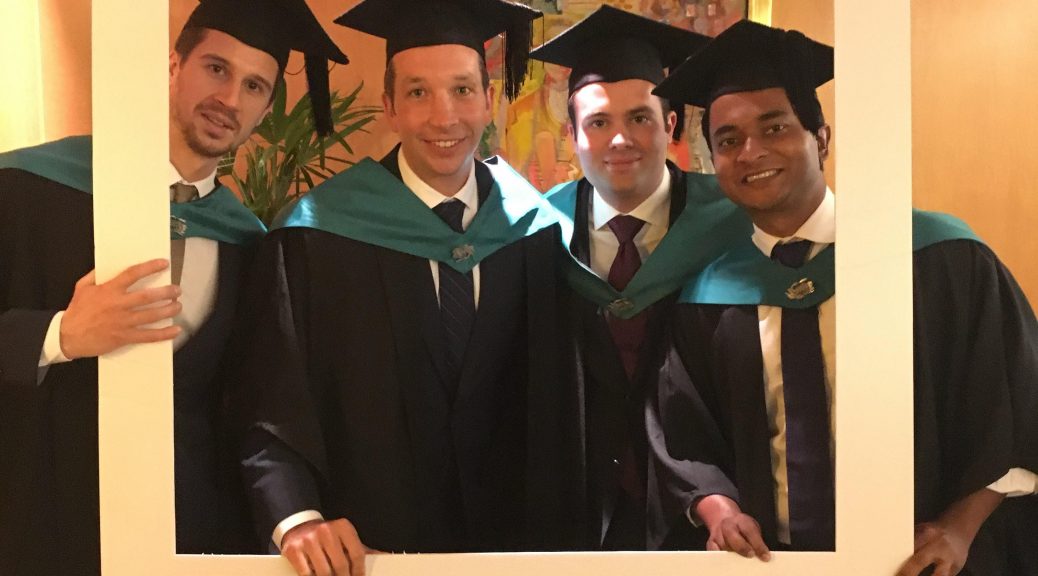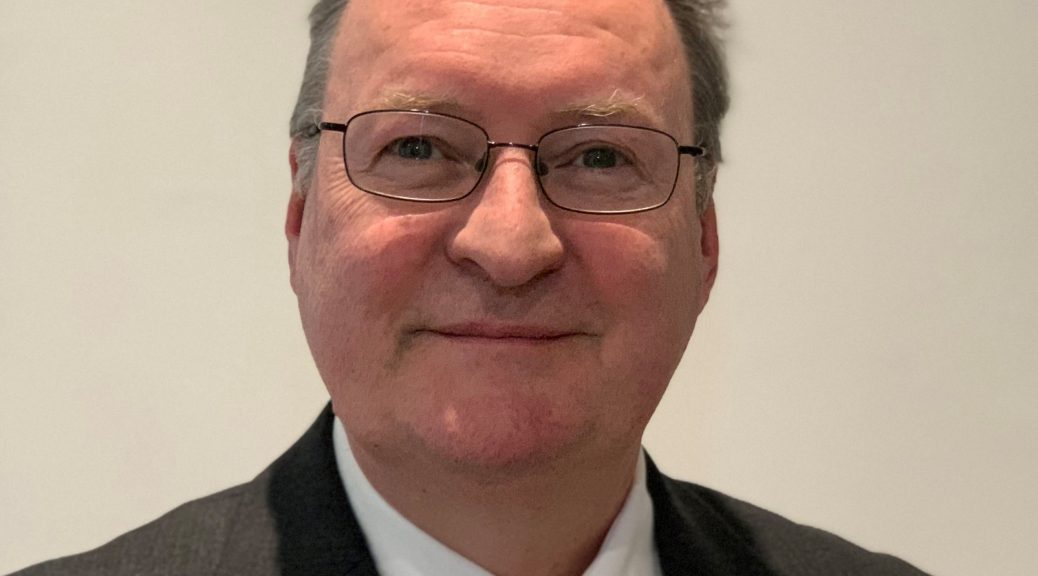
A broken Walkman and advice from a younger brother may seem unusual career influencers but they both combined to set Engineer, Kofoworola Agbaje on an inspirational career path via seven years in banking to her current role as an Investment Associate at Quona Capital which, so far, has seen her successfully close venture investment deals in six countries. Quite a feat for someone who has, in her own words, experienced ‘imposter syndrome’ at points in her life. A key turning point came in 2017 when Kofoworola was awarded a Sainsbury Management Fellows scholarship for her MBA study at Wharton Business School where she would build her business skills further. Kofoworola’s story told by her, highlights the importance of not being afraid to step out of your comfort zone and, above all, being open to advice and guidance from others.
Choosing Engineering
Becoming an engineer wasn’t my first career plan. I had a hankering to be a doctor, but unfortunately for me, I hated the sight of blood, and it transpired that biology wasn’t my strongest subject. Clear signs that a career in medicine would not be my path.
However, I excelled at maths – I absolutely loved maths and at school I would jump at the chance to help younger students, even today it’s still one of my passions. I find maths comforting which is just as well as I do a lot of analysis in my current role. Clearly, maths was going to play a big role in my career, but as much as I loved working with numbers, for me studying maths at university would be too narrowly focused. I felt it could limit my career options.
I started to think about career options. I had always enjoyed tinkering with tech and one incident prompted my brother to suggest that I study engineering. I had accidentally broken the Walkman that my dad had bought me, so purely on instinct, I took it apart and repaired it. Seeing this, my brother jokingly said, “you should study electrical engineering”. That banter turned into serious discussion and then research into the subject. I applied and to my delight was accepted into Imperial College London. So, my route into engineering was partly due to playing to my strengths in maths and partly from listening to a shrewd piece of brotherly advice.
When I arrived at Imperial College London for my interview, I remember feeling lost. I’d been to school in rural Sussex so wondered how I would survive in central London and what the course was going to be like. Unlike a lot of universities, the term started later in the year which, thankfully, gave me time to build my confidence. I used that summer to get comfortable with the idea of being at university.
The best part about the university experience was the diversity of students. There weren’t a lot of females in my classes, but there were far more than in my A level classes, and more importantly, there were females from many countries and lots of students with different backgrounds and stories and studying with such a diverse group broadened my view of the world. It was also my first experience of expressing my African side in the UK which I was able to do through the university’s Afro Caribbean Club. There are many such clubs at universities that give you the opportunity to mix broadly with students academically and with specific communities. This was incredibly good for me.
Above all, my time at Imperial gave me so much confidence. I did well to get there, but I struggled with imposter syndrome. I remember thinking “why am I here?” and that feeling lingered for the first two years of my four-year course, yet I graduated with a first-class degree. Being at such a prestigious university and still being able to succeed despite my concerns boosted my confidence and it was an important part of my growth at that time.
During my first year at Imperial, I was convinced that after graduation, I would get a job with an engineering firm like Land Rover. In my second year, firms came to the campus to recruit – there were so many tempting opportunities that it was hard to decide. There was a period of confusion trying to figure out what my post-graduation career would look like. Everything fell into place in my third year – I gained an internship with the Royal Bank of Scotland (RBS), and I went on to join its graduate trainee programme after I graduated.
RBS Internship Helped Me Choose my First Career
Whilst on the initial RBS internship, I met a lot of people with totally different backgrounds and seeing all those people working in finance, helped me realise that I could do almost anything post-degree. You can feel a little overwhelmed with all the opportunities presented by recruiting firms and an internship helps you focus on what you want to do.
During my two-month internship, I worked in different teams depending on who needed support. My boss at the time, Stuart Gurr, was incredibly helpful and was one of the reasons why I took the graduate role. He was always busy as he ran a department of over 100 people, but whenever we had our catch up, he always took time to talk and that impressed me. He said that to build a career in banking, you must do multiple roles and advised me that whether I loved or hated a particular task, banking would provide a solid foundation that would allow me to do many other things. Whether I opted for a banking or an engineering career long term, he said the experience would be invaluable and he was right.
Full Time at RBS
When I joined the RBS graduate programme, I received the obligatory six weeks’ training and then did my rotation across different teams in multiple roles. During that time, I learnt that I could do anything I was tasked with! I went from doing an electrical engineering degree at Imperial where the only coding language I knew was Pascal to learning C#. Then I became a business analyst and later moved to another team that coded only in Java. I worked at the equity desk, in finance and strategy and credit risk – I moved around a great deal and learned so much.
During my seven years at RBS, I held a variety of challenging roles that stretched me. The experience taught me that it’s important to remain open and not to put yourself into a ‘career box’. It’s easy to fall into trap of thinking that you must do the same job as your last one. The default position tends to be move from being a developer in one firm to being a developer in another, from business analyst to business analyst and so on. However, many skills that we learn as undergraduates and on-the-job are transferrable: you may be working in healthcare today, but it’s possible to take your skills into banking tomorrow. My time at RBS taught me to stop thinking about myself as someone who could only do one job.
Five years into my time at RBS I began seriously thinking about doing an MBA. The MBA had always been in my mind, and I had attended an MBA information session in London while I was studying at Imperial. Even though it was early days, and I was advised that applicants need work experience before doing an MBA, I registered on the GMAT website so that I could receive the MBA articles and build up a knowledge bank for the future.
Which Business School – Wharton or MIT?
The desire to do the MBA was spurred by my increasing interest in working “front-office”, as it’s called in banking. When you work in tech in a non-tech organisation you are often seen as back-office professionals, people who help the business to function rather than driving growth and profit. I was keen to move into the business side of things and succeed but my resume was very tech. That’s what I mean by putting ourselves in boxes. I asked myself, how can I move out of the tech space where everyone thinks that is all I can do? Doing an MBA was the answer.
Choosing the business school was not straightforward. I ended up in a school where I was so adamant that I would not go! I knew for certain that I would study in the USA because I wanted a completely new experience.
After initial research, I attended information sessions for Harvard, MIT and Wharton. I was confident about wanting to apply to MIT and Harvard, but I didn’t feel any affinity with Wharton. However, when I delved into Wharton’s website, I quickly realised that my experience in financial analytics was a perfect match for the school. I was also a good fit for MIT, so I applied to both schools and received offers from them.
Then I attended the welcome weekend for both schools and again I came away with the feeling that Wharton was not for me, but I felt at home with MIT. The attendees at the MIT event included a lot of people with similar backgrounds to mine: engineers, rocket scientists and the like. Wharton’s event was attended by people who were a world apart from me at that time, for example, from private equity backgrounds. My first thought was, “this is not my tribe, and I don’t know how to interact with them.” I was uncomfortable and I was so sure that I wouldn’t choose Wharton that I didn’t go to view the accommodation options!
As always, I discuss big decisions with my family and my brothers had an influence on my final decision. Talking to them about how well I fitted in with the MIT group compared to the Wharton group, they made me realise that I was putting myself in a box. One said, “The fact that you felt uncomfortable with the group at Wharton is the exact reason why you should choose that school. You’re not going to business school to get comfortable; you’re going to get out of your comfort zone!” It made sense. I was going to America because I wanted to experience something new and challenging, what could be more challenging than joining students with totally different backgrounds to me? So, I chose Wharton, and it is the best decision I have ever made.
Scholarship Awardees Helped Me Secure MBA Funding
Neither of my business school offers came with financial support, which is not unusual. The MBA is a significant cost and even with family support, I needed additional funding. The work to raise the funds started with a list of sources of possible help. I researched many websites, anything that was related to masters, MBAs, engineering, and diversity support, be that gender or ethnicity. It was during this research that I found the LinkedIn profiles of SMFs. First, SMF Busola Banjo, who had been awarded a Sainsbury Management Fellows (SMF) scholarship to study at INSEAD. I checked out the SMF scholarship and it looked like a great opportunity. I messaged Busola to ask for her help and she willingly agreed to share her scholarship application experience.
Thankfully, the SMF scholarship applications were still open for the year I wanted to start business school and I was selected for an interview. I contacted another SMF, Animish Sivaramakrishnan, who had just been awarded a scholarship to ask questions that helped me prepare for my interview, The information and advice shared by both Busola and Animish were enormously helpful, and I am so grateful to them both.
I must confess that despite all this preparation, I was very nervous on the interview day and my imposter syndrome tendency crept in, but I needn’t have worried. I was interviewed by a fantastic panel, and it was reassuring to see the diversity on the panel: someone older, someone younger, someone who had done his MBA fairly recently, and a hugely impressive lady called Naomi Climer CBE. I was so impressed I emailed her after my interview. I heard quickly after my interview that I was being awarded the SMF scholarship; I was delighted. Not only would I have financial support for my MBA, but I would become part of the SMF network.
Key Lessons from My Business School Experience
So, I headed off for my MBA adventure and what an adventure it was. Again, I learned the value of not putting myself in a box and being open to fresh ideas. I tell anyone who wants to know about MBAs, that you can literally craft the experience to suit yourself. People who knew me before the MBA tell me that I came out of my shell because of my MBA. I met so many people that were not like me and that forced me to change my worldview. It was challenging at the beginning, but it helped me flourish.
I learnt many important lessons at business school. Probably the most important is to embrace people and their ideas and don’t be afraid of failure. I work in venture capital now and the idea of working in this sector came from a classmate who had worked in private equity. I was deeply sceptical at the time because I had no experience in buying companies but listened to his rationale for saying that my tech background and experience would be ideal for venture capitalism. Despite my protestations about lack of experience, he kept insisting that I would be a good venture capitalist. So, I started taking courses in the subject; I did eight in total and spent four months in San Francisco during my MBA, to get to know the venture world first-hand.
It’s amazing how those experiences have helped the career path I’m on now. The idea of becoming a venture capitalist seemed random back then, but my classmate was right. I am so grateful that I was willing to step outside my comfort zone: that’s why I picked Wharton Business School and even though venture capitalism seemed strange electives at the time, I still checked them out. I’m grateful for being open-minded and for being surrounded by people who were so different from me.
When I tell people the story of my MBA journey and post-MBA career, they think it makes sense, but it didn’t always make sense to me back then, because my journey wasn’t straightforward. Even with the MBA from Wharton, transitioning into venture capitalism took tenacity. I must have sent hundreds of emails with a response rate of around 0.1%, but I made it!
Taking to VC like a Duck to Water
Now, I’m an Investment Associate at Quona Capital, a VC firm that invests in financial services technology in different markets – it’s such an exciting business. Since I have been with the company, we have invested in businesses in Nigeria, Kenya, Turkey, UK, Egypt, and South Africa. I’ve worked with all our portfolio in these countries supporting our investments (though of course much has been done remotely during the COVID pandemic). I love my job, especially working with seriously smart people who are experts in their field and who are so passionate about their ventures!
My job entails analysing markets and specific sectors, as well as deal sourcing. Once we have the data on a sector, I research companies and propose them to my team. If we decide to invest, I build a model on that investment so that we have clarity about its likely progression and return on investment. When we commit, we support the lifecycle of our investment, which covers everything from supporting the CEO with hiring and financing to product and company expansion. Essentially, anything that helps companies achieve their goals.
Engineering and Business Skills Working in Harmony
My path into venture capitalism has been atypical and I draw on my engineering background and skills all the time at Quona. Analytics is the bedrock of an engineering career. You learn how to analyse situations, models, numbers – the skills you learn from that, regardless of what engineering you’ve studied, are transferrable. My manager says that when they were recruiting for my role, they saw my engineering background as a real asset. I might not have done consulting or investment banking but put me in front of any Excel spreadsheet and give me time with it, and I will tell you what is going on with the data! Most people I know who studied engineering have strong analytical abilities. It’s important to remember that there are so many things that you can do with those skills.
If you’re a young engineer looking to make a paradigm shift in your career, I would suggest that you take stock of what you’ve been doing and what you’ve learnt in your current role. Then think about what you can apply your skills to. Think laterally, you might be a lawyer – companies need lawyers in high-tech too, you don’t always have to work for a legal firm. You might be a coder; you can work in healthcare just as much as you can work in cleantech.
So many industries have tech underlying them. There are so many roles within different sectors where you might not have been able to work in five or ten years ago, but today you can because of the pace of innovation. Explore sectors you might not have considered before, and don’t take the easy route! Then figure out how to get there – do you need another degree, extra work experience, or a new classification? Whatever it takes to get where you want to be, do it!
I’ve come a long way in my business life, and I have left the imposter syndrome tendency behind me. I think I’ve shown what is possible with a combined engineering and MBA education and by embracing other people’s observations and advice, not least my wonderful brother, who reminds me far too often about his hand in my career! I’m delighted that he is also thinking about doing an MBA and now it’s me who is trying to convince him to go to Wharton – remember, if you can dream it, you can do it!
The SMF MBA Scholarship
If you are a professional engineer considering an MBA as a stepping-stone towards a business leadership career, visit our MBA scholarship application page, you could be awarded a £50,000 scholarship.





















